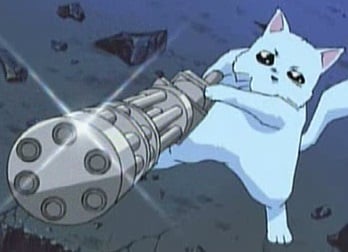It’s amazing what happens when management leave Devs alone to do actual work instead of calling SCRUM bullshit.
Goldeneye64 : 1997 JIRA : 2002
Or anyone creative
That might have worked then. Not so sure nowadays. The work ethic was different back then.
Edit: I didn’t realize the can of worms I opened up. Hopefully it stirs a little bit of constructive conversation. I realize I have an unpopular opinion here. That’s ok. I wish all of you a prosperous and content life. I’m not here to stir up hate. I simply expressed my opinion. I’ve learned a little about how passionate some of you are about this topic. I never thought I would start such a hornet’s nest.
People still create great shit when left to their own devices and properly cared for
Workers in the 90s are no different from any others
I was there in the 90s. Working full time. There was a noticeable difference in the work ethic from then to today.
It kinda just sounds like cool and interesting people don’t want to hang out with you. I wonder why.
I have a loving family and a decent job. I have everything I need. I can count the friends I have on one hand.
Small teams being allowed to do what they want can still give good results, but you aren’t going to see that at major companies. I almost solely play indie games by micro or solo dev teams.
That’s a great point. I do support indie games when I enjoy them. Not a fan of the micro transaction slop that huge publishers are pushing
You could also afford to work on failed projects because houses and healthcare costed two acorns and a peanut.
Did you forget the /s?
Reminds me of the graphing calculator on Macs. Guy wanted it in system 7 so bad he ignored getting fired, broke into the office, and snuck it into the master build.
(beginning of) The Graphing Calculator Story
The Graphing Calculator Story
Copyright © 2004 Ron Avitzur.
Pacific Tech’s Graphing Calculator has a long history. I began the work in 1985 while in school. That became Milo, and later became part of FrameMaker. Over the last twenty years, many people have contributed to it. Graphing Calculator 1.0, which Apple bundled with the original PowerPC computers, originated under unique circumstances.
I used to be a contractor for Apple, working on a secret project. Unfortunately, the computer we were building never saw the light of day. The project was so plagued by politics and ego that when the engineers requested technical oversight, our manager hired a psychologist instead. In August 1993, the project was canceled. A year of my work evaporated, my contract ended, and I was unemployed.
I was frustrated by all the wasted effort, so I decided to uncancel my small part of the project. I had been paid to do a job, and I wanted to finish it. My electronic badge still opened Apple’s doors, so I just kept showing up.
I had many sympathizers. Apple’s engineers thought what I was doing was cool. Whenever I gave demos, my colleagues said, “I wish I’d had that when I was in school.” Those working on Apple’s project to change the microprocessor in its computers to the IBM PowerPC were especially supportive. They thought my software would show off the speed of their new machine. None of them was able to hire me, however, so I worked unofficially, in classic “skunkworks” fashion.
I knew nothing about the PowerPC and had no idea how to modify my software to run on it. One August night, after dinner, two guys showed up to announce that they would camp out in my office until the modification was done. The three of us spent the next six hours editing fifty thousand lines of code. The work was delicate surgery requiring arcane knowledge of the MacOS, the PowerPC, and my own software. It would have taken weeks for any one of us working alone.
At 1:00 a.m., we trekked to an office that had a PowerPC prototype. We looked at each other, took a deep breath, and launched the application. The monitor burst into flames. We calmly carried it outside to avoid setting off smoke detectors, plugged in another monitor, and tried again. The software hadn’t caused the fire; the monitor had just chosen that moment to malfunction. The software ran over fifty times faster than it had run on the old microprocessor. We played with it for a while and agreed, “This doesn’t suck” (high praise in Apple lingo). We had an impressive demo, but it would take months of hard work to turn it into a product.
I asked my friend Greg Robbins to help me. His contract in another division at Apple had just ended, so he told his manager that he would start reporting to me. She didn’t ask who I was and let him keep his office and badge. In turn, I told people that I was reporting to him. Since that left no managers in the loop, we had no meetings and could be extremely productive. We worked twelve hours a day, seven days a week. Greg had unlimited energy and a perfectionist’s attention to detail. He usually stayed behind closed doors programming all day, while I spent much of my time talking with other engineers. Since I had asked him to help as a personal favor, I had to keep pace with him. Thanks to an uncurtained east-facing window in my bedroom, I woke with the dawn and usually arrived ten minutes before Greg did. He would think I had been working for hours and feel obliged to work late to stay on par. I in turn felt obliged to stay as late as he did. This feedback loop created an ever-increasing spiral of productivity.
People around the Apple campus saw us all the time and assumed we belonged. Few asked who we were or what we were doing.When someone did ask me, I never lied, but relied on the power of corporate apathy. The conversations usually went like this:
Q: Do you work here? A: No. Q: You mean you’re a contractor? A: Actually, no. Q: But then who’s paying you? A: No one. Q: How do you live? A: I live simply. Q: (Incredulously) What are you doing here?!
See link for remainder
What a fantastic read.
Dozens of people collaborated spontaneously, motivated by loyalty, friendship, or the love of craftsmanship. We were hackers, creating something for the sheer joy of making it work.
I’m moved by this. I feel that this is what HN used to be maybe 10 years ago. Now its just VC crap and making money as quickly as possible with lock-in market-corning crapware.
I worked in video games in the 2000, same feeling, good memories and shenanigans (in Ghost Force, we hid a level with pigs and exploding penguins for example), and I call most of the coworkers my friends still.
Now it’s just crap it seems.
Maybe it was the raw new stuff getting thrown at you all the time. Today it’s just “a PC”, slightly faster. Same engine.
Or I’m getting old :-D
Yeah, that fucking rocked.
Great read, thanks!
http://www.pacifict.com/story/
For anyone wanting a read.
“Broke in” is a bit of an exaggeration. Their cards simply weren’t turned off and they managed to fake it until the project was finished.
If you read the whole thing you’ll learn that for some time their cards were in fact deactivated and they had to sneak in behind other people.
It’s been decades since the last time I read it in full.
It’s funny seeing interviews with the devs and they basically go “We had no idea what we were doing with the N64. How did this succeed?”
Then you find out about stuff like the fully functional ZX Spectrum Emulator in the game and begin wondering too.
That puts the fact that Jet Pac was in DK64 into a different perspective.
The ultimate pain: License to kill. Slappers only. Oddjob.
Pulling Mountain Dew and dorito fueled all nighters with my friends playing this game are such core memories.
Somewhere among the top 1…
My play was to always throw a ton of mines everywhere and just listen to the boom.
I would do this in Far Cry before raiding a base. Plant a few mines around the approaches to the base in case the alarm got tripped. Always fun to hear the “We’re coming in from the north!” BOOM
Slappers only!
As an avid aq2 player this multiplayer mode was a literal joke when this game came out. I was like why is everything so damn slow???
Innovative? Lmfao.
AQ2 came out the year after Goldeneye
Seriously. That other multiplayer first person shooter on the console was MUCH better. I can’t remember the name though… Any idea what it was?
Perfect Dark. Also came out after. Goldeneye was revolutionary, everybody played it. Any house I went to, we played Goldeneye.
Perfect Dark wa great, but Goldeneye seemingly scratched the itch for FPS amongst casual gamers at the time, and so it was never as popular.
I don’t know what it is but if it’s a multiplayer PFS then I bet it came out after Goldeneye
This guy gets it :-)







